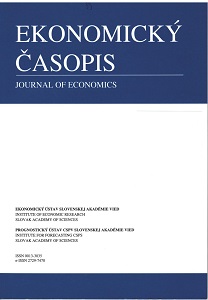Suitability of the Monocentric City Model for Analysing Suburbanization Processes in the Czech Republic
Suitability of the Monocentric City Model for Analysing Suburbanization Processes in the Czech Republic
Author(s): Jiří Balcar, Martin KrejčíSubject(s): Human Geography, Rural and urban sociology, Financial Markets, Socio-Economic Research
Published by: Ekonomický ústav SAV a Prognostický ústav SAV
Keywords: suburbanization; urban sprawl; monocentric city model; spillover effect; spatial regression;
Summary/Abstract: In previous decades, we could see significant growth of population in suburban areas in the Czech Republic, which was connected with significant environmental, social, and economic costs. As the rapid suburbanisation continues, the better understanding of its determinants and estimation of their effects become necessary. In this article, we test the suitability of popular monocentric city model for analysing suburbanization processes in polycentric areas in the Czech Republic, which led to employing data for Czech districts (NUTS 4) in the period 2010 – 2019. The results show that the monocentric city model is suitable for analysing suburbanization in the Czech districts (represented by suburban land growth), as all its determinants (population size, unemployment, and commute costs) with the exception of price of building plots were found to be statistically significant and with expected signs. Moreover, the alternative operationalization of the model provided evidence on the robustness of the results and heterogeneity analysis revealed interesting differences between districts different in urbanisation level and other characteristics. The application of spatial regression revealed a statistically significant spatial spillover effect of the unemployment.
Journal: Ekonomický časopis
- Issue Year: 71/2023
- Issue No: 04-05
- Page Range: 321-342
- Page Count: 22
- Language: English

